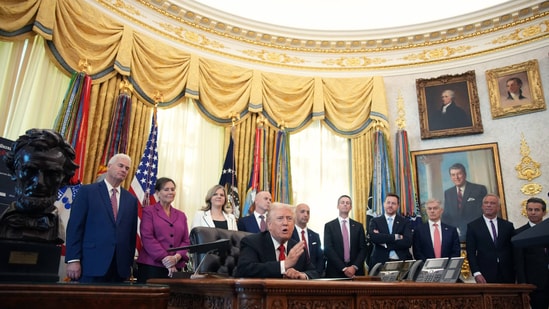President Trump claimed credit Thursday for cutting prices on popular weight-loss drugs by Eli Lilly and Novo Nordisk. Sorry to spoil the celebration, but market competition probably would achieve the same result. Consider the battle between Pfizer and Novo to buy Metsera, an obesity-drug startup.
 President Donald Trump, joined by members of the pharmaceutical industry and administration officials, delivers remarks on lowering drug prices in the Oval Office on Thursday
President Donald Trump, joined by members of the pharmaceutical industry and administration officials, delivers remarks on lowering drug prices in the Oval Office on Thursday
Pfizer appeared to win the bidding war on Friday with an unfortunate assist from the Trump Federal Trade Commission. But the real story is pharma competition to grab a share of the weight-loss drug boom.